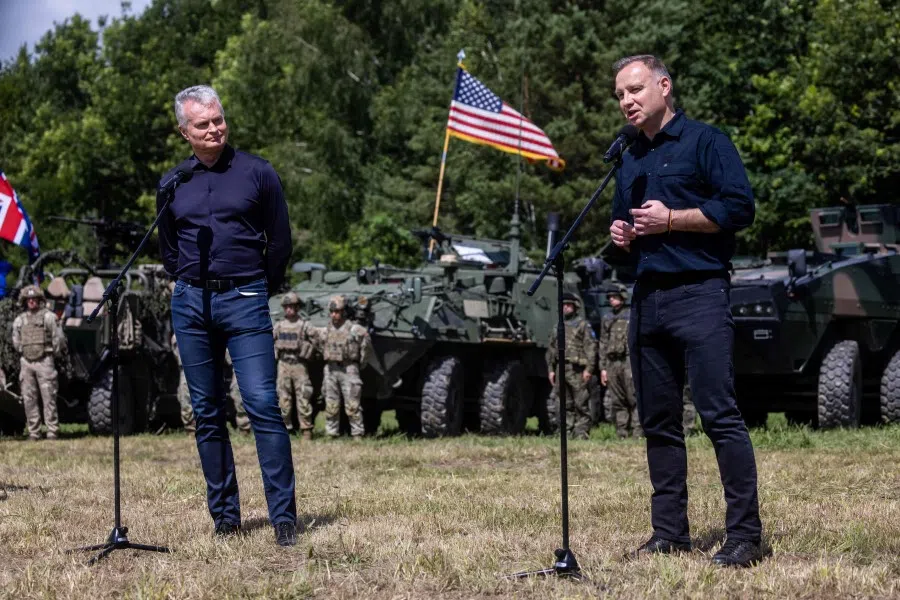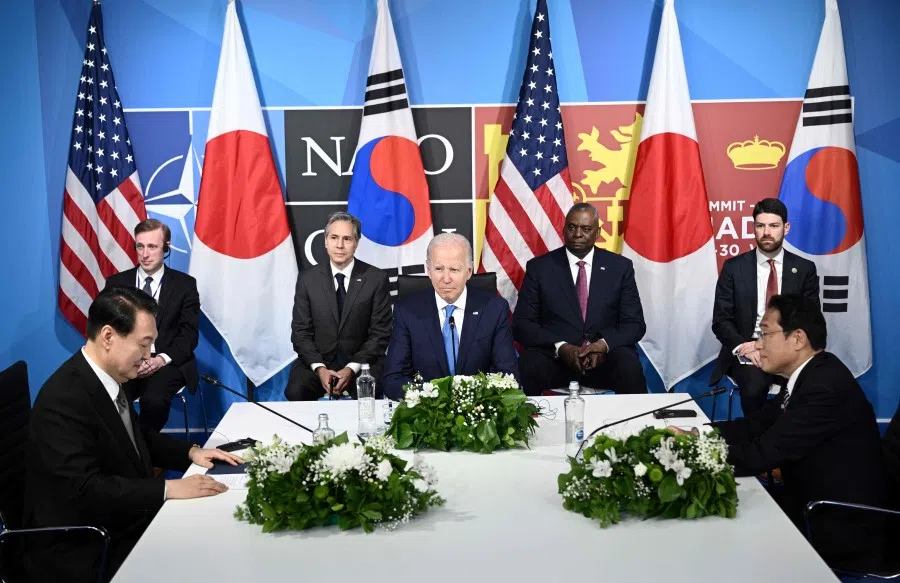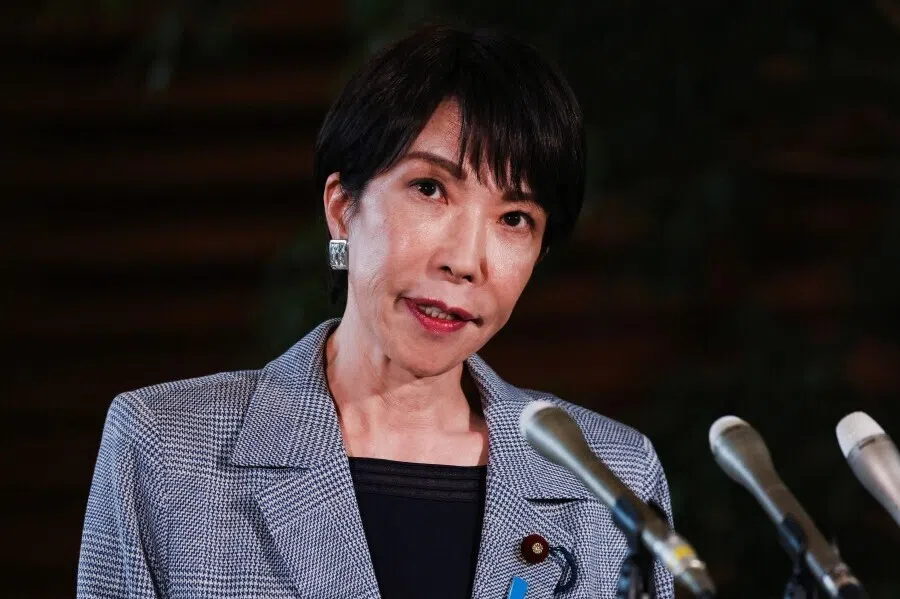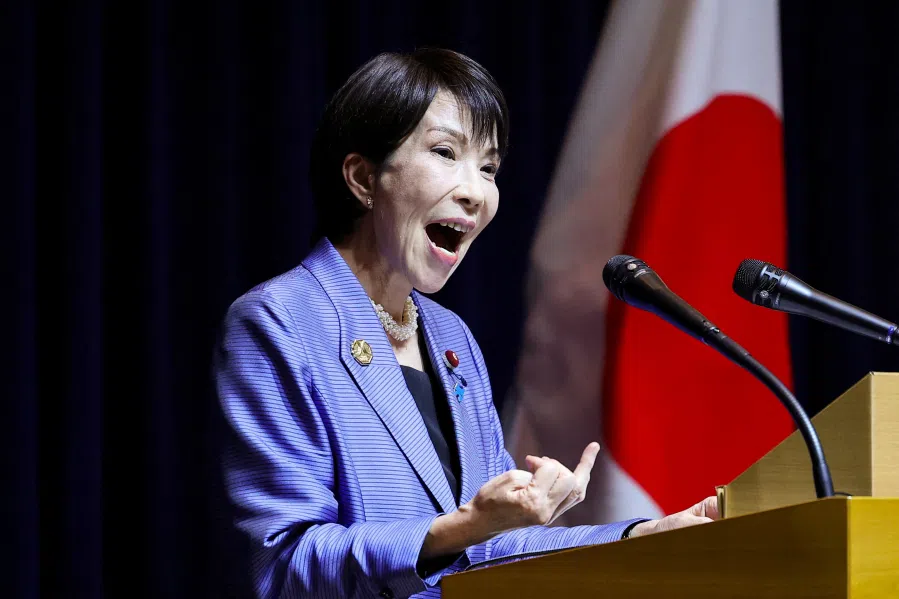The US's fragmented foreign policy
Analyst Zheng Weibin notes that the NATO summit in Madrid showed the US's lack of awareness of what Asian countries really want - namely, not to take sides in the US-China competition. Such lack of judgement will hamper their policy of reinvigorating their relations with Asia. Will they be able to realise the incongruence in their policies and change course?

The recent NATO summit in Madrid showed the unity of Europe and the US, in a seeming act of putting right the schism during Trump's presidential term. However, we cannot think that US diplomacy will be free of Trump-era chaos. On the contrary, US foreign policy is still showing some signs of division.
Since taking office, US President Joe Biden has repeatedly declared diplomatic focus on Asia, especially East Asia. He has strengthened the Quadrilateral Security Dialogue (Quad) and launched AUKUS, a trilateral security pact between the US, the UK and Australia, as well as the multilateral Indo-Pacific Economic Framework for Prosperity (IPEF). Besides traditional allies Japan, South Korea and Australia, the US is also actively drawing in India and ASEAN.
At the same time, Biden has fulfilled the objective of pulling out of Afghanistan - while the hurried exercise was seen as another "Saigon moment", Biden explained that was to better adjust his diplomatic focus.
All this shows that he is different from Trump. Now, US foreign policy is driven by geopolitics, and big power competition has become its focus; in terms of tactics, the US is paying more attention to allies and organisations and using more diverse methods.
While the Biden administration has pulled out of Afghanistan, it has become ensnared in the turmoil of geopolitical change in Europe.
Distracted by other geopolitical conflicts
While the Biden administration has not directly sent troops to intervene in the Russia-Ukraine war, it has given significant support to Ukraine, especially in terms of reiterating its stance and providing weapons. At the NATO summit, the Biden administration said it would ramp up US military presence in Europe and deploy more vessels in Spain and more troops in other regions, and establish a permanent headquarters for the US 5th Army Corps in Poland.

If the war in Ukraine becomes a protracted war, the US might find itself mired in European security issues. Granted, this does not mean that the US would thus be unable to shift its focus to Asia. In a US-led unipolar world, the US is certainly capable of doing so, as it sees the whole world as its sphere of influence. But whether the US's current strength would allow it is another question.
Trump's "America First" policy has continued into the Biden era, a given consequence of previous over-expansion by the US. While the Biden administration has pulled out of Afghanistan, it has become ensnared in the turmoil of geopolitical change in Europe.
Understanding what Asia really wants
The Biden administration's fragmented foreign policy does not end there. Biden sees Asia as his diplomatic focus and has pushed the agenda since taking office. The question is whether Biden understands that Asian countries, especially Southeast Asian countries, do not want to get involved in the political tussle between China and the US. Looking at NATO's eastward expansion, it seems the Biden administration does not understand this.
... it was unwise for Biden to pull in some Asian countries to the NATO summit. That may have helped the US in its competition against China, but in fact it would damage the US's Asia strategy.
Given that Asia was also another topic of concern at the NATO Summit, the US also roped in the leaders of Japan, South Korea, Australia and New Zealand. China is a future strategic target for NATO - its eastward expansion will surely make the region less stable or add to the mindset of military competition between countries, which would be bad news for many Asian countries that value economic development and trade exchanges.

Just as only about 40 countries responded to the US's call for sanctions against Russia, many countries are taking a wait-and-see approach and have said they do not want to take sides with any group. This is no longer the bipolar world of the Cold War era, nor is it a unipolar world led by the US, but a more diverse, multipolar world. More countries want more options, and not just "A or B". But the Biden administration does not seem to realise this.
... the US does not have an accurate idea of changes in the world order, which is precisely why it is fragmented.
So, it was unwise for Biden to pull in some Asian countries to the NATO summit. That may have helped the US in its competition against China, but in fact, it would damage the US's Asia strategy. This is one aspect of its fragmented Asia policy.
Then is this the US's panicked response to a world order that is rapidly changing and becoming more diverse, or a response stemming from polarisation within the US itself? Or is it paranoia of failing in its competition with China? Or ambition in working to protect the US's leading position in the world order? All these might be reasons. But just as the label of the "new Cold War" does not accurately describe international relations or big power competition following globalisation, the US's fragmented foreign policy reflects that the US does not have an accurate idea of changes in the world order, which is precisely why it is fragmented. And so, someone like Trump might still become a future US president.





![[Big read] China’s 10 trillion RMB debt clean-up falls short](https://cassette.sphdigital.com.sg/image/thinkchina/d08cfc72b13782693c25f2fcbf886fa7673723efca260881e7086211b082e66c)